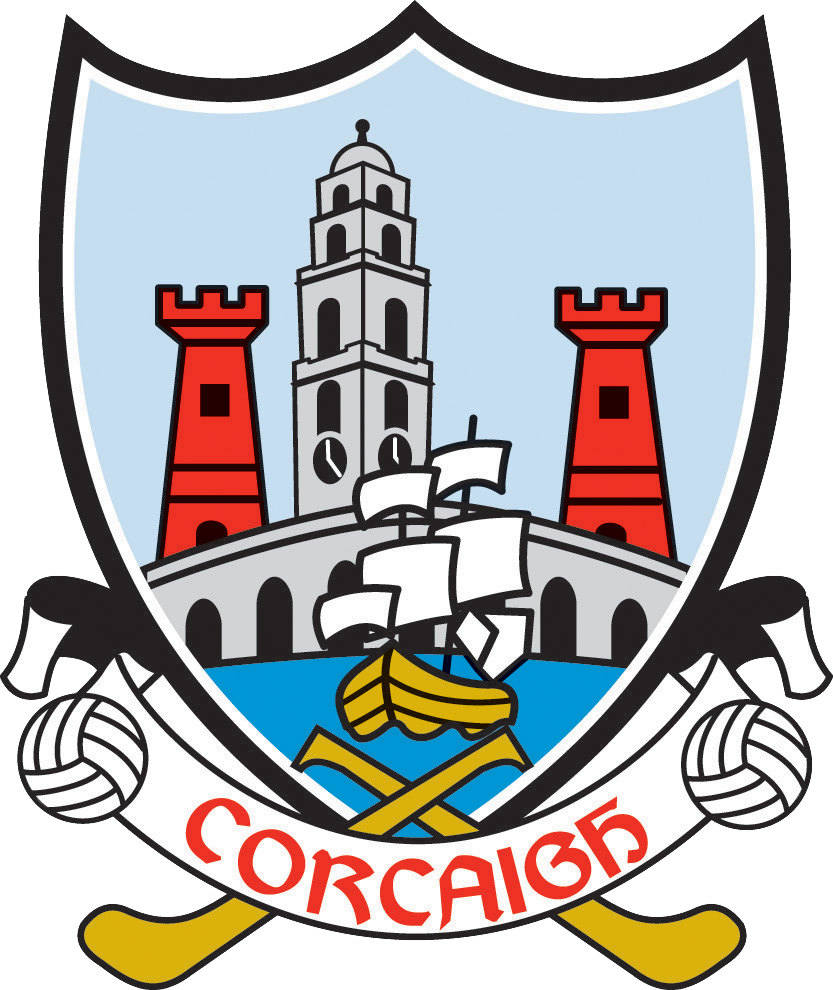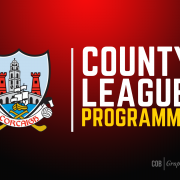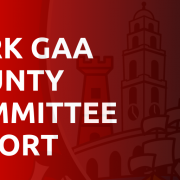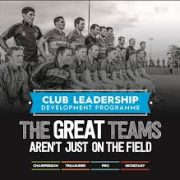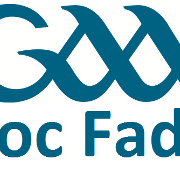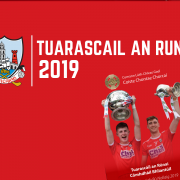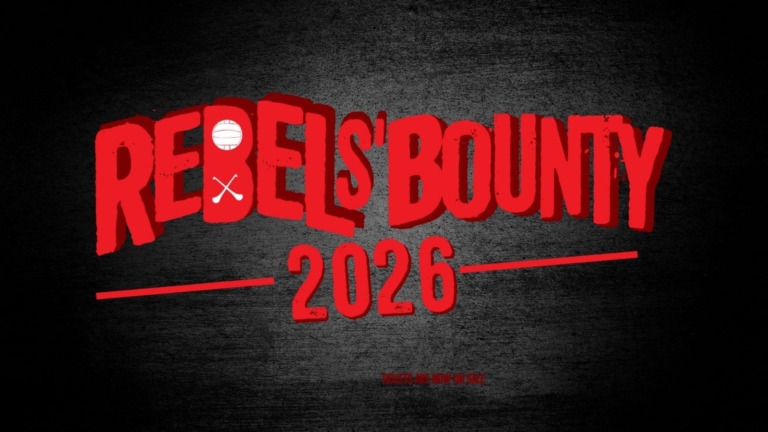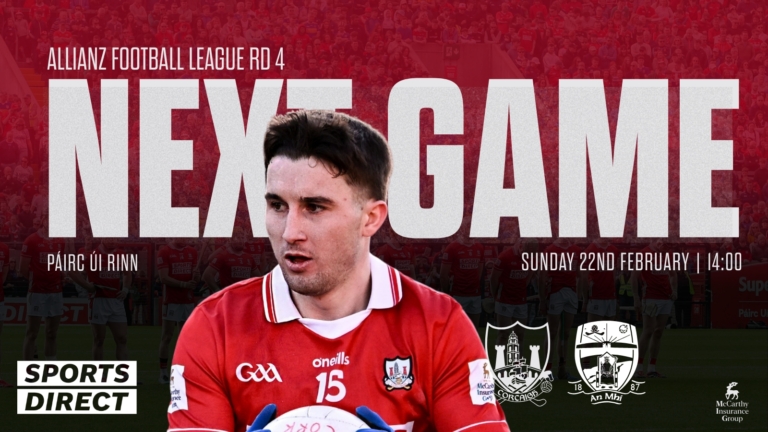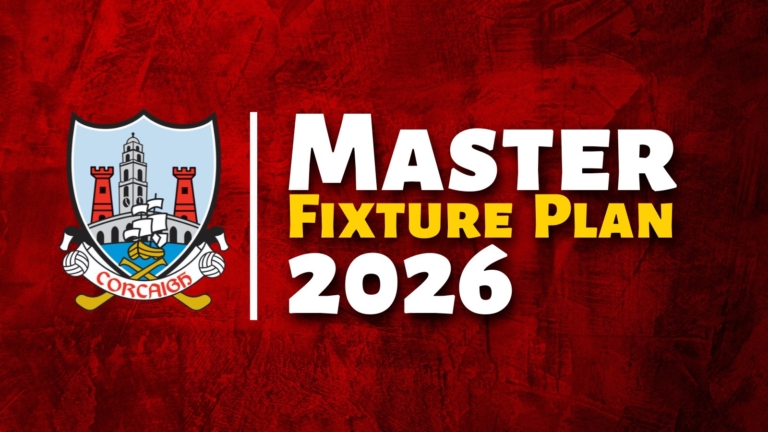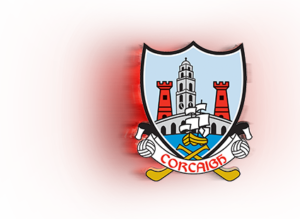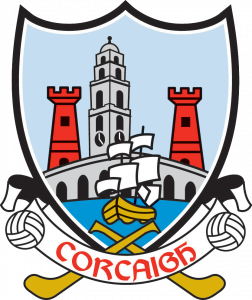Congress 2020
This Friday and Saturday (February 28 and 29) the GAA’s Annual Congress takes place in Croke Park.
A total of 63 motions will go before the delegates to be debated and voted on.
At the bottom of this article you can view and download the motions as they will appear before the delegates.
You can also download some useful documents to read alongside examining the motions – GAA Official Guide Parts 1 & 2, Ard Stiúrthóir Tom Ryan’s 2019 Annual Report, and the GAA’s 2019 Financial Report.
Below is a simplified guide to the motions to be dealt with this weekend. via www.gaa.ie
It’s worth noting that there are no new rule changes proposed by any motion this year, only amendments to current rules. Any motions passed in terms of rule amendments will be implemented a month after Congress subject to Central Council.
MOTION 1
This motion proposes to give the sidline official the power to bring to the attention of the referee, during a break in play, any instances of foul play which have not been noticed by the referee.
MOTION 2
This motion seeks to give team captains and managers the power to ask the referee to consult with the Hawkeye Score Detection System and/or his fellow officials to clarify if any of the match officials erred in making a decision in relation to the validity of a score or the awarding of a free/sideline/wide/45 or 65 or square infringement. This would be limited to two failed requests per team and the request must be made before the play resumes.
MOTION 3
This motion proposes that a referee must first give permission to a team medical officer or another authorised official before they can enter the field of play to examine an injured player.
MOTION 4
Under current rule in both Gaelic Football and Hurling you can carry the ball in your hand for a maximum of four steps before you play it. This proposed rule amendment would stipulate instead that you can carry the ball for a maximum of two seconds in Gaelic Football and Hurling in your hand(s) before you play it.
MOTION 5
This motion seeks to extend the rule that allows a temporary substitution if a player has a blood injury. If passed, you will also be allowed to bring on a temporary substitute for a player who has suffered a ‘head injury’.
MOTION 6
This motion proposes a rule amendment that any player who receives a kick-out cannot pass it back to his goalkeeper. The penalty proposed for a breach of this rule would be a free-kick awarded to the opposition from the position the goalkeeper recieves the pass, or if the goalkeeper is inside the 13m line when in receipt of the pass the free will be from the 13m line opposite where the foul occurs.

MOTION 7
This motion relates to the advanced mark in Gaelic Football and comes from the Standing Committee on Playing Rules. At the moment if a player wins an advanced mark he can elect to play on and must be allowed to proceed unhindered for four steps by the opposition if he does play on. This motion proposes to allow the opposition to tackle the player immediately if he wins a mark inside the large or small rectangle and elects to play on.
MOTION 8
This motion relates to the duties of linesmen and the sideline official and puts forward two proposals. It gives linesmen the authority to, having consulted with the referee, indicate to a sideline official the amount of additional time to be played. Currently sidline officals are only appointed for senior inter-county championship matches and League Games. This motion also proposes that a sideline official can also be appointed by the committee in charge for all other games.
MOTION 9
This motion proposes giving awarding two points to the scoring team when a ball is struck over the bar and between the posts in hurling from a sideline cut.
MOTION 10
This motion proposes extending the duration of adult club matches from 60 minutes to 70 minutes.
MOTION 11
Currently All-Ireland semi-finals that are level after normal time go to extra-time (The All-Ireland Finals and Provincial Finals are currently the only inter-county championship matches that go straight to a replay if level at the end of normal time). This motion proposes doing away with extra-time for All-Ireland semi-finals. An All-Ireland semi-final that is level at the end of normal time would instead go straight to a replay.
MOTION 12
This motion proposes to prohibit the use of metal bands on hurleys at underage hurling up to and including the U-12 grade.
MOTION 13
This motion proposes to introduce a black-card in hurling on a similar basis to which it already applies in football – to deliberately pull down an opponent; to deliberately trip an opponent with hand, arm, leg, foot or hurley; to deliberately collide with an opponent after the opponent has played the ball away for for the purpose of taking the opponent out of the movement of play; to remonstrate in an aggressive manner with a match official; to threaten or to use abusive or provocative language or gestures to an opponent or team-mate. The black-card penalty would be ten minutes in a sin-bin. If the player has already been yellow-carded, then he is show a black-card followed by a red-card. A player who receives a second black-card or a yellow-card after returning to the field of play from the sin-bin would be red-carded.
MOTION 14
This motion deals with what offences merit cards in Gaelic Football and Hurling. At the moment referees shall only issue cards if they deem the infraction to be have been deliberate and not accidental. This motion proposes to remove that clause so referees will no longer have to judge whether a serious act of foul play was deliberate or not.
MOTION 15
This motion deals with the advantage rule and proposes that if an aggressive foul occurs within scoring distance in Gaelic Football (e.g. within 45m) and hurling (e.g. within 65m) that the referee will award the free rather than play advantage unless the referee considers there is a clear potential of a goal being scored.
MOTION 16
This motion proposes that each team should have a designated official and two designated players chosen before a match and identified by the wearing of a distinctive armband who are able to approach the referee in a courteous manner as to a matter of fact in relation to the game before the game starts, at half-time, or when the game ends.
During a break in play the players wearing these arm-bands are the only ones allowed on the pitch to approach a referee in a courteous manner to seek clarification on a decision a match official has made. The referee must give a clear and polite reply when addressed by these players.
If an undesignated player approaches a referee and shows dissent when the opposition have been given a free then the referee can bring the free forward 13m (but no further than an opponent’s 20/13m line).
If an undesignated player approaches a referee and shows dissent after their own team have been given a free then the referee can cancel the free and throw-in the ball.
If an undesignated player from either team approaches a referee and shows dissent during open play the referee can award a free to the opposition from where the dissent took place or where the ball is in play, whichever is more advantageous.
MOTION 17
This motion seeks to clarify what the responsibilities of all development related officers in a county would be. It would get rid of the generic title ‘Development Officer’ and instead specify a number of rules such as ‘County Safety Officer, ‘County Insurance Officer’, etc.
MOTION 18
This motion proposes to give each county the authority to regrade players in a manner appropriate for their own championships subject to any guidelines issued by Central Council.
MOTION 19
This motion relates to the All-Ireland SFC Quarter-Final Group Stage and amending the rule that currently specifies that Croke Park must be one of the neutral venues. The neutral game would instead be at a venue to be determined by CCCC.
MOTION 20
This motion deals with the nomination and election of club and county officers. It puts the onus on any person seeking to vote or be nominated/elected to prove they have paid their membership subscription.
MOTION 21
This motion proposes that a GAA club cannot be affiliated unless they have hed a General Meeting within the preceding 48 weeks.
MOTION 22
This motion proposes that any vote to amalgamate taken by two clubs shall by done by secret ballot and be made prior to the 20th of November in the year preceding the proposed amalgamation taking place.
MOTION 23
This motion proposes that each county should have a finite number of seats on its various committees. It doesn’t matter what the number is, as long as there’s a stated limit you can’t have more than.
MOTION 24
This motion proposes that attendees at the annual National Youth Forum must be aged 12-21 years of age. It also proposes that a maximum of five National Youth Forum delegates will now be nominated rather than elected to present a Report to Congress where they will have speaking rights.
MOTION 25
This motion proposes to extend the powers of Central Council to include setting the closed season and return to collective training periods.
MOTION 26
This motion proposes that from now on no member of the National Management Committee or Central Competitions Control Committee (CCCC) would be permitted to sit on the Central Hearings Committee (CHC). This is to prevent any potential conflicts of interest.
MOTION 27
This motion proposes that from now on no member of the Management Committee of Central Council, Central Competitions Control Committee (CCCC), or Central Hearings Committee (CHC), would be permitted to sit on the Central Appeals Committee (CAC). Like Motion 26, this is to prevent any potential conflicts of interest.
MOTION 28
This motion proposes that a player may only avail of one inter-county transfer in any calendar year.
MOTION 29
This motion will firstly ask Congress to define the eligiblity span for the U-21 grade. There are two options. 1: A player shall have celebrated his 16th birthday prior to January 1st and his 21st birthday on or after January 1st of the Championships Year.
OR
2: A player shall have celebrated his 17th birthday prior to January 1st and his 21st birthday on or after January 1st of the Championships Year.
The motion also defines the already agreed eligibility spans for all other age-groups – U-20, U19, U18, U17, U16, U15, U14, U13, U12, and U11.
MOTION 30
This motion proposes to extent the jurisdiction of the Management Committee of Central Council in such a way that it could intervene in any matter that could cause serious damage, reputational or otherwise, to the Association.
MOTION 31
This motion proposes that while a county shall be allowed to determine its own intenral underage grades from U21 to U11, it must do so subject to Central Council policy.
MOTION 32
This is a wide-ranging motion that seeks to tidy up a lot of the provisions that apply to Gaelic Games played outside of Ireland and Britain. The idea is to put a framework around what will be called ‘World GAA’ and to draft a constitution for ‘World GAA’ in terms that are more meaningful for clubs that are set up internationally. There are a number of proposals in this motion that will be voted on as a whole which we’ve broken down numerically here.
1: The GAA would be defined as the ‘International Governing Body’ of Gaelic Games.
2: ‘World GAA’ would be defined as a branch of the Association.
3: Both a ‘County’ and a ‘Province’ would be defined as units recognised as such by Central Council.
4: A distinction would be made between counties who participated in the previous senior inter-county championships and those who did not in determining how many delegates may represent each county at Annual Congress. The maximum representation for any one county that did not compete in the previous year’s championships would be reduced from 10 to 5 delegates.
5: World GAA would be able to propose a maximum of one motion at Congress.
6: World GAA would have a representative on Central Council.
7: Central Council would have the power to recognise geographical areas as Counties or Provinces and to decide from time to time what geographical areas fall under the jurisdiction of World GAA.
8: The Chairperson of World GAA would be appoined by Central Council, not elected.
MOTIONS 33 TO 43 COME FROM THE FIXTURES CALENDAR REVIEW TASKFORCE
MOTION 33
This motion proposes to establish a National Club Fixtures Oversight Committee and sets out who the members would be and the powers of the Committee. It would investigage matters related to the enforcement of rules on the scheduling and postponement of club fixtures, inter-county player availability to clubs, inter-county challenge and tournament games and closed periods/collective training. The proposed committee would also have responsibility for approving county club fixture programmes on an annual basis and ensuring county club fixture programmes are consistent with the Association’s rules and policies.
MOTION 34
This motion proposes establishing a National Competitions Control Committee for inter-county affairs up to the U-17 grade.
MOTION 35
This motion proposes taking away the power of a Provincial Council to ‘take any action necessary’ in relation to fixtures programmes under its jurisdiction. This power would instead be put in the hands of the National Club Fixtures Oversight Committee.
MOTION 36
This motion deals with the monitoring of county fixtures programmes. Counties will have to submit a plan for their club fixtures programme in January. Each province will have a monitoring system for that and an appointed person to report any breaches to the proposed National Club Fixtures Oversight Committee. This motion also sets out penalties for non-compliance which range from financial to competition disqualification.
MOTION 37
This motion relates to the role of the Provincial Fixtures Analyst. It gives that person the right to be a member of the Central Fixtures Analysis Committee and the National Club Fixtures Oversight Committee.
MOTION 38
This motion proposes to bring the four provincial nominated appointees with responsibility for club fixtures into the Central Fixtures Analysis Committee.
MOTION 39
This motion proposes that a player who plays for their county senior football team in the Allianz League is not eligible to play for their county U-20 in the championship in the same calendar year.
MOTION 40
This motion relates to the timing of Higher Education Council Championships. It proposes that the Sigerson Cup be completed by the fifth Sunday of the year and the Fitzgibbon Cup completed by the seventh Sunday of the year.
MOTION 41
This motion relates to the timing of Post Primary Schools Championships. It proposes that the A and B football championships be completed by the fifth Sunday of the year and the A and B hurling championships be completed by St. Patrick’s Day.
MOTION 42
This motion proposes playing the All-Ireland U-20 Football Championshiops in the months of February and March save in exceptional circumstances such as bad weather.
MOTION 43
This motion proposes to abolish the All-Ireland Junior Football Championship.
MOTION 44
This motion is directly related to motion 25 which seeks to extend the powers of Central Council to include setting the closed season and return to collective training periods. Motion 44 effectively gives Central Council the power to determine what the timetable should be on a year to year basis.
MOTION 45
This motion proposes that a county’s Assistant Treasurer is not limited to a five-year term where a county’s bye-law says the position is not subject to maximum number of years in office.
MOTION 46
This motion proposes to allow counties and provinces to appoint up to two independent members to their county committees and provincial councils.
MOTION 47
This motion proposes that only a full member who has paid their annual club subscription prior to the 31st of March in a membership year and registered shall be entitled to be nominated for, or elected to any elective office in the same membership year.
MOTION 48
This motion relates to when players can play for a particular county or club if they have ‘a relevant connection’. The first part of his motion proposes that a ‘legal guardian’ may provide that relevant connection in the same way a parent does under current rule.
This motion also proposes that Central Council be given the power, in exceptional circumstances, to deem a player to have an ‘Other Relevant Connection’ with a particular club or county in accordance with policy adopted by Central Council.
MOTION 49
This motion proposes that any player who transfers from one county to another cannot transfer again within a 12-month period after the transfer has been approved.
MOTION 50
Currently any player who transfers to another club has the right to finish a competition he has already started with his previous club in that season. This motion proposes that once you transfer clubs you can’t finish a competition for your previously club.
MOTION 51
This motion proposes that a player could play for any other county if they have a ‘relevant connection’ to that county, not just a so-called weaker county designated by Central Council
MOTION 52
This motion proposes that a player who has played in the Tier Two Football Championship or Tiers 3/4/5 of the hurling championship should still be able to register as a member of any club in the USGAA board jurisdiction in that same year. Currently, any player who has been included on an inter-county senior championship team list in the current year’s championship is not eligible to register for a club in the USGAA board jurisdiction.
MOTION 53
This motion proposes to increase the age of eligibility from a four-year to a five-year span at U-20 level.
MOTION 54
This motion proposes to reinstate the U-18 age-group as minor (it is now currently U-17).
MOTION 55
This motion is effectively proposing the same as motion 54.
MOTION 56
This motion proposes that a club player will not lose his current championship status by playing in his first game of a higher grade championship.
MOTION 57
This motion deals with a situation that would arise in the League phase of a championship if one team gives a walkover in a group where two teams or more finish on equal points. Currently, in this situation, those teams that finish on the same points will have a play-off. This motion proposes that before a play-off is required, two other methods should be an earlier recourse to separate the teams who finished on equal points.
Firstly, score difference from the games in which only the teams involved, (teams tied on points), have played each other (subtracting the total Scores Against from total Scores For). If both teams have the same score difference, then the next step is to compare their Highest Total Score For, in which only the teams involved, have played each other. If the teams still can’t be separated, then a play-off must be played.
MOTION 58
This motion deals with the All-Ireland minor and U-20 hurling championships. In the All-Ireland minor championship, it proposes doing away with the round-robin series after the provincial championship and instead have either the Munster or Leinster champions on a rotating basis play Galway in an All-Ireland semi-final with the winner of that game the remaining provincial champion in an All-Ireland Final.
At the moment there’s a back-door for beaten provincial finalists in the All-Ireland U-20 hurling championship. This motion also proposes to do away with that so the Munster and Leinster winners simply play one another in the All-Ireland Final.
MOTION 59
This motion proposes to change the promotion and relegation structure between the various tiers of the All-Ireland hurling championship thereby ‘balancing’ the number of counties playing in each tier. If the motion is passed, the following would come to pass
Liam MacCarthy Cup: In 2020 there would be no relegation from the Leinster Championship while the Joe McDonagh champions would be promoted to the Leinster Championship for 2021 thereby bringing the number of competing teams in the Leinster Championship to six. The exception would be if Kerry won the Joe McDonagh Cup this year. Then they would play off against the whatever team finished bottom in the 2020 Munster Championship to decide which team would compete in the Munster Championship in 2021 and which team would play in the Joe McDonagh Cup. In that scenario the bottom team in the Leinster Championship would not be relegated. If a team other than Kerry wins the Joe McDonagh Cup this year, then the Leinster Championship will go from a five-team to a six-team competition.
Joe McDonagh Cup: There are currently five teams in the Joe McDonagh Cup. The Joe McDonagh Cup winners would be promoted and no team would be relegated from the Joe McDonagh Cup in 2020 while two teams would be promoted up to the Joe McDonagh Cup from the Christy Ring, thus ensuring the Joe McDonagh Cup would have six teams in 2021.
Christy Ring Cup: There are currently eight teams competing in the Christy Ring Cup. The Christy Ring Cup finalists would be promoted up to the Joe McDonagh Cup for 2021 while the Nickey Rackard Cup winners would be promoted up to the Christy Ring Cup for 2021. The bottom team in the Christy Ring Cup would be relegate to the Nickey Rackard Cup. This would reduce the number of counties competing in the Christy Ring Cup from eight to six in 2021.
Nickey Rackard: There are currently eight teams in the Nickey Rackard Cup. One team will be promoted to the Christy Ring Cup while one team will drop down from the Christy Ring Cup to the Nickey Rackard Cup. The two bottom teams would be relegated to the Lory Meagher Cup. The third bottom team would play the Lory Meagher Cup winner in a play-off with the winner competing in the Nickey Rackard Cup in 2021. This would reduce the number of teams playing in the Nickey Rackard Cup in 2021 from eight to six.
Lory Meagher Cup: There are currently four teams in the Lory Meagher Cup. Two teams will definitely be relegated from the Nickey Rackard Cup with the possibility of a third (in which case one team would be promoted from the Lory Meagher Cup to the Nickey Rackard Cup). This would increase the number of counties competing for the Lory Meagher Cup in 2021 from four to six.
MOTION 60
This motion, if passed, would extend the penalties that apply to conduct considered to have discredited the Association. It proposes a penalty of a deduction of points, and, where this occurs in a League competition, the team must still fulfil all fixtures and have the appropriate number of points deducted at the conclusion of the competition.
MOTION 61
This motion proposes to remove the requirement that an application for full or social membership of the GAA must be proposed and seconded by two existing members.
MOTION 62
This motion proposes the same as Motion 61, but for youth membership.
MOTION 63
This motion proposes to remove the obligation to publish and circulate the names and addresses of new club members to every other club-member. Instead that list of people would go to the club executive, not the general membership.
*click here download some useful documents to read alongside examining the motions – GAA Official Guide Parts 1 & 2, Ard Stiúrthóir Tom Ryan’s 2019 Annual Report, and the GAA’s 2019 Financial Report.
